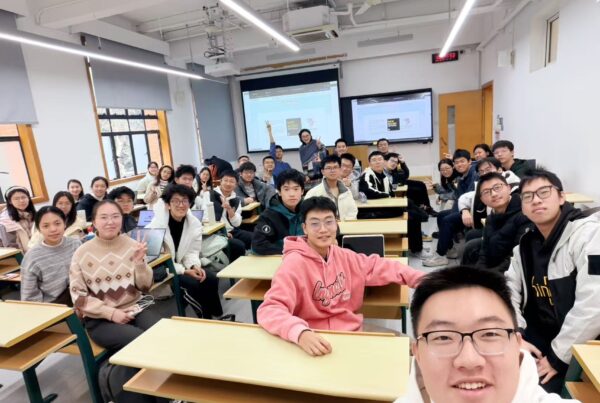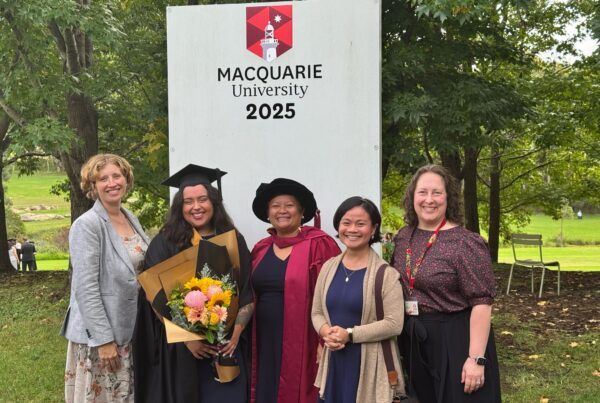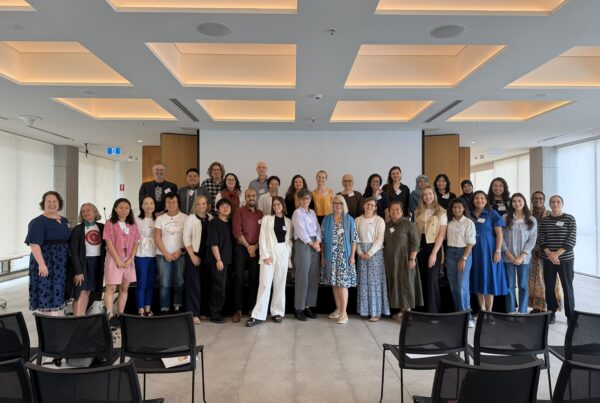
(Image credit: Mana Akbarzadegan via Unsplash)
Have you noticed the persistent divide between domestic and international students at Australian universities? Do you worry how the English-monolingual habitus of our highly linguistically diverse institutions of higher learning affects student learning? Would you like to discuss the recent Language in Society article “Marking and unmarking the (non)native speaker through English language proficiency requirements for university admission” with the authors?
Here’s your chance: The Linguistics Department at Macquarie University will host a free webinar devoted to “Rethinking English Language Proficiency and Academic Achievement in Australian Higher Education” this Friday.
When: Friday, March 31, 2023, 4-5pm AEDT (Sydney time)
Where: via Zoom (Pwd: 798325)
Who: Distinguished Professor Ingrid Piller and Dr Agnes Bodis
Abstract: English language proficiency (ELP) is central to the academic achievement of the 1.5 million students enrolled in Australian universities each year. Yet, students are highly linguistically diverse, with a mix of domestic students from English- and non-English-speaking backgrounds and international students from national contexts where English may be the main language, an official language in a multilingual context, or a foreign language with limited communicative functions.
How do universities manage students’ linguistic diversity through their admission requirements and set students up for success?
In this seminar, we examine ELP requirements for university admission in Go8 universities to answer this question. Our language ideological analysis found two categorically different constructs of ELP: inherent ELP based on citizenship, linguistic heritage, and prior education, and tested ELP. We show how these two different conceptualizations of ELP map onto two dichotomous student groups. One of these is deemed to naturally speak English while the other is constructed as deficient and subject to perpetual scrutiny.
These language ideological constructs frame ELP as a matter of individual responsibility rather part of embedded in learning processes. Conversely, they obscure the need for continuous language development of all students and the need for pedagogical innovation in linguistically diverse educational institutions. We close with implications for policy and practice.
Further reading
Bodis, A. (2023). Gatekeeping v. marketing: English language proficiency as a university admission requirement in Australia. Higher Education Research & Development, 1-15. https://doi.org/10.1080/07294360.2023.2174082
Piller, I. (2023). How do universities decide whose English needs to be tested for admission? Language on the Move. https://languageonthemove.com/how-do-universities-decide-whose-english-needs-to-be-tested-for-admission/
Piller, I., & Bodis, A. (2022). Marking and unmarking the (non)native speaker through English language proficiency requirements for university admission. Language in Society, 1-23. https://doi.org/10.1017/S0047404522000689 [open access]






 This work is licensed under a
This work is licensed under a
I would love to join and learn new things.
I would love to join and learn about the blatant and pivotal issues related to language.
That looks so interesting but I’m very sad I can’t make it at that time. Is it possible you would be able to record the Zoom meeting and make it available? I would really love to hear this discussion.
Thank you for your interest, Lisa! We’ll see whether we can record it. If we do, we’ll post the link here 🙂
Hi Lisa,
a recording is now available at
Enjoy! 🙂
Thank you so much Ingrid. It was a fascinating talk – particularly your point that the admission process and language requirements perpetuate the social disconnect between students by sorting them into categories. Possibly this was also raised in the discussion after your talk, but I find it interesting that the testing requirements also provide a very handy income stream for language testing facilities, many of which seem to be conveniently attached to universities.
Thanks, Lisa! No doubt about it, the commercial aspect is big. Yet, despite the large numbers of international students, the commercial incentives don’t seem to work to make higher ed more inclusive …
That’s very good, thanks for sharing. Well noted.